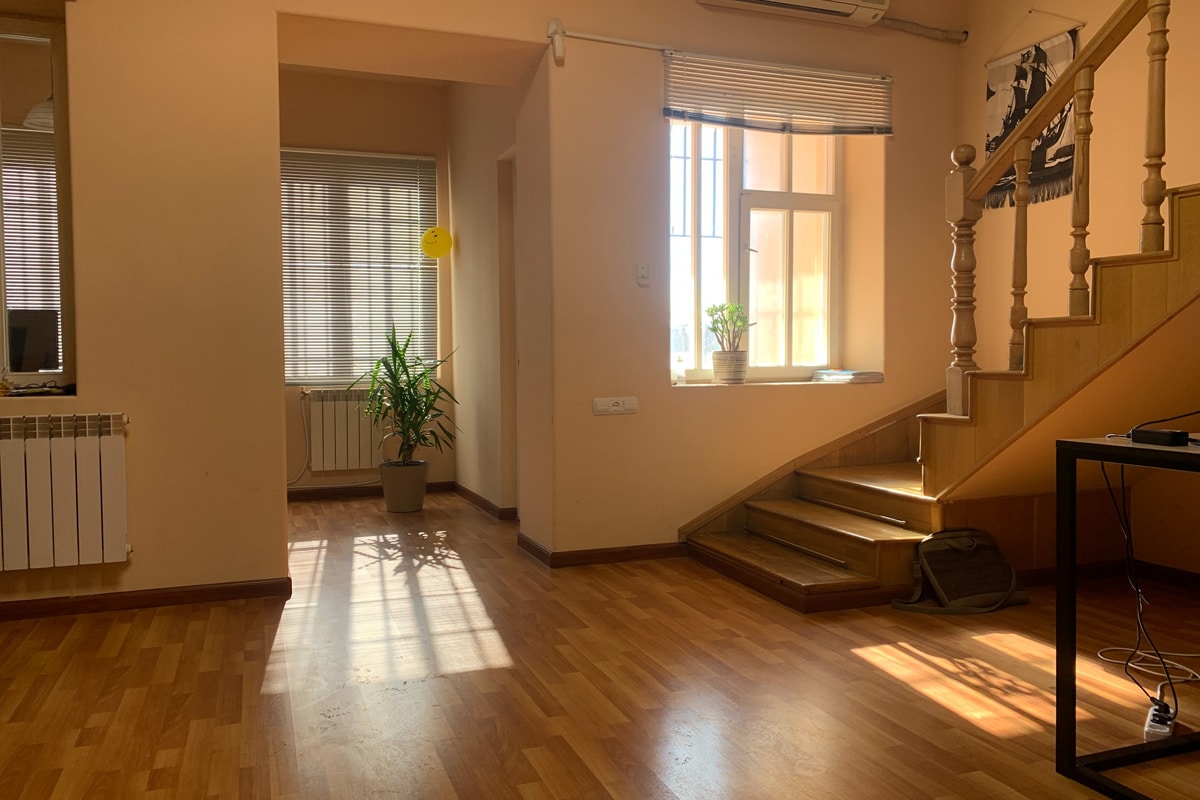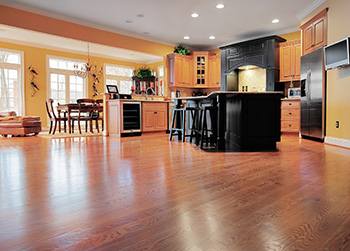The smell of fresh wood and the warm feeling beneath your feet – there’s nothing quite like a hardwood floor. But before you start tearing up your carpets and dreaming of a beautiful new floor, there’s one important question you need to answer: how much will it cost?

Image: nvkitchenandbath.com
Calculating the average cost of hardwood floors per room can be a bit of a puzzle. Factors like wood type, installation method, room size, and even your location can dramatically affect the price tag. This guide will help you navigate through the complexities, providing you with the information you need to make informed decisions for your home.
Understanding Hardwood Flooring Costs: A Breakdown
Factors Affecting Hardwood Floor Prices
The cost of installing hardwood floors is influenced by several factors. Knowing these factors will help you estimate the price for your specific project:
- Wood Type: The type of wood you choose significantly affects the cost. Exotic hardwoods like Brazilian cherry and mahogany are considerably more expensive than domestic options like oak or maple.
- Wood Grade: Hardwood lumber comes in different grades, with higher grades generally costing more because of their consistent color, grain patterns, and fewer knots.
- Installation Method: Traditional nail-down installation is typically cheaper than glue-down or floating systems, which require specialized underlayment and sometimes additional labor.
- Room Size: Larger rooms require more materials and labor time, leading to higher installation costs.
- Labor Costs: Labor costs vary depending on your location, the complexity of the job, and the experience of the installer.
- Subfloor Condition: If your existing subfloor needs repairs or replacement, these costs will add to the overall price.
- Finishing: Staining and finishing options, including the number of coats and the type of sealant, impact the overall cost.
Average Cost of Hardwood Flooring per Room
While it’s impossible to give an exact price without specific details about your project, here’s a general idea of average costs per room based on commonly used wood types and installation methods:
| Room Size | Oak (Nail-down) | Maple (Nail-down) | Engineered Hardwood (Glue-down) |
|---|---|---|---|
| 100 sq ft | $1,000 – $1,500 | $1,200 – $1,800 | $1,500 – $2,000 |
| 200 sq ft | $2,000 – $3,000 | $2,400 – $3,600 | $3,000 – $4,000 |
| 300 sq ft | $3,000 – $4,500 | $3,600 – $5,400 | $4,500 – $6,000 |
Important Note: These figures are just estimates. Be sure to consult with local flooring contractors for accurate quotes tailored to your specific project.

Image: floorcritics.com
Exploring Hardwood Flooring Trends
The world of hardwood flooring is constantly evolving, with new trends emerging all the time. Here are some of the latest developments you should consider:
Wider Plank Sizes
Wider planks are gaining popularity, creating a more modern and spacious feel in rooms. These larger planks often require fewer seams, minimizing visual distractions and generating a more seamless look.
Distressed and Reclaimed Wood
Rustic and distressed hardwood flooring is on the rise, adding character and a touch of history to any space. Reclaimed wood has become a trendy option, promoting sustainability by using repurposed materials.
Unique Finishes
Beyond traditional stains and finishes, innovative options like whitewashed, oiled, and distressed finishes are making their mark. These treatments provide a unique look and complement diverse design styles.
Engineered Hardwood
Engineered hardwood flooring has seen a surge in popularity due to its affordability, stability, and versatility. It can be installed over concrete subfloors, making it ideal for new construction and renovations.
Expert Tips for Choosing and Installing Hardwood Floors
Choosing and installing hardwood flooring can be a daunting task, but with some expert advice, you can navigate the process with confidence:
1. Seek Professional Advice
Don’t hesitate to consult with an experienced flooring contractor. They can provide valuable insights, suggest suitable wood types, and offer estimates based on your specific project needs.
2. Research Wood Types
Before making your final choice, research different wood types. Consider factors like durability, color variations, price, and maintenance needs to find the perfect fit for your home.
3. Pay Attention to Subfloor Condition
A sturdy subfloor is crucial for a successful hardwood floor installation. If your existing subfloor is damaged or uneven, address those issues before moving forward.
4. Embrace the Finishing Touches
Invest in a professional finish for your hardwood floors. This step protects the wood and enhances its beauty, ensuring a long-lasting and beautiful floor.
Hardwood Floor FAQ
Here are some frequently asked questions about hardwood floors to guide your decision-making process:
Q: Are hardwood floors durable?
Yes! Hardwood floors are highly durable, resistant to scratches and dents, making them an excellent choice for high-traffic areas.
Q: How do I care for hardwood floors?
Hardwood floors require regular cleaning with a soft-bristled broom or vacuum cleaner. Avoid harsh chemicals and excessive moisture. Consider professional refinishing for significant wear and tear.
Q: Can hardwood floors be installed over concrete?
Yes, engineered hardwood floors can be installed directly over concrete subfloors, while traditional hardwood floors often require a moisture barrier and a proper installation method.
Q: Are hardwood floors eco-friendly?
Hardwood floors are a sustainable choice. Trees are a renewable resource, and a well-maintained hardwood floor can last for decades, making it an environmentally friendly choice.
Average Cost Of Hardwood Floors Per Room
In Conclusion
Investing in hardwood floors can elevate your home’s aesthetics and value. With careful planning, expert advice, and attention to detail, you can achieve a stunning and long-lasting flooring solution that you’ll love for years to come.
Are you considering hardwood floors for your home? Share your thoughts and questions in the comments below!






